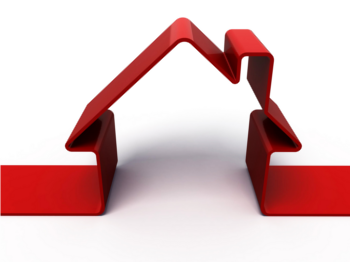Homeowner's Insurance
When buying a home, one word you will hear often is "insurance." As a homeowner you are concerned about protecting your house, your personal belongings and your personal liability. It is important that the coverage you choose provide the comprehensive protection that you need.

Homeowner's insurance protects you and your house against losses from fire, theft, liability, vandalism, water damage, wind damage, tornadoes and loss of use. Earthquake and flood insurance are not included but can be purchased separately.
Types
There are three types of homeowner's policies to choose from. A clear understanding of the coverage each type offers will help you select the right policy for your needs. Each type carries a deductible amount you select.
-
A standard policy requires coverage for at least 80% of the value of your home, excluding land and the foundation. It will usually insure your personal property at actual cash value.
-
A broad-from policy is more inclusive than the standard policy and covers additional named perils such as glass breakage, smoke damage, etc.
-
An all-risk policy covers even more than do the standard and broad-form policies. An example of a covered risk might be damage caused to your roof from ice build-up in the gutters.
Some of these policies offer optional guaranteed replacement cost coverage on your home and its contents. Replacement cost coverage will pay to rebuild your home and replace its contents with no depreciation coming into play.
It is important to understand that the replacement value of your home is based on your insurance company's estimate of the cost to rebuild your home on your property. It is not based on the purchase or appraised value of the home. Most policies have a built-in annual increase of replacement cost coverage.
Reducing Premiums
When purchasing homeowner's insurance, there are ways of lowering your premium. Most insurance companies offer discounts for smoke alarms, fire extinguishers, dead bolt locks, and whole-house alarm systems. If your home is fairly new, or if you elect to insure your automobiles with the same company, you are likely to receive a discount on your premium.
Another way of lowering your premium is to select as high a deductible as you can afford. Raising your deductible reduces your premium.
Insurance is the type of service you buy hoping that you will never have to use it. The right insurance can give you a sense of security in knowing that you are adequately protected.


